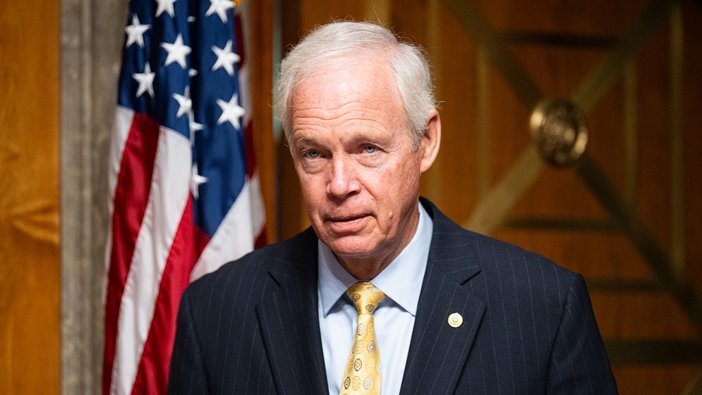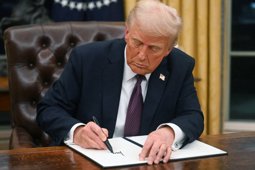
Senators Push Spending Cuts in Trump's $3T Bill
Republican senators challenge Trump's $3 trillion spending bill, demanding detailed cuts to tackle soaring national debt.
Senators Call for Budget Discipline
Republican senators, including Ron Johnson, Rand Paul, and Rick Scott, are voicing strong opposition to President Donald Trump's ambitious spending bill, which is projected to add approximately $3 trillion to the national debt. Passed by the House in late May, the "big, beautiful bill" has triggered significant concerns within Trump's own party about its long-term fiscal impact.
Sen. Ron Johnson (R-Wis.) is leading the call for a rigorous, "line-by-line" budget review aimed at reducing spending to pre-pandemic levels. Johnson emphasized on Sunday the importance of this meticulous approach, ruling out generalized spending cuts and instead suggesting a detailed audit to eliminate unnecessary expenditures.
"It's been [an] unprecedented level of spending," Johnson explained. "There's no justification for $4.4 to $7 trillion in just six years. Getting back to a reasonable pre-pandemic level, you do it line by line by line."
Republican Division Over Debt Concerns
Sen. Rand Paul (R-Ky.) firmly stated his opposition to the bill in its current form unless the debt ceiling component is separately addressed. "I’m a no unless we separate out the debt ceiling," Paul asserted, indicating openness to supporting other aspects of the legislation if his key condition is met.
Sen. Rick Scott (R-Fla.) echoed Johnson’s fiscal concerns, highlighting the potential long-term debt crisis if unchecked spending continues. "If we follow the path of the House bill, we'll have close to, I think, $60 trillion worth of debt in 10 years," Scott warned. He advocated for a household-budget-style review to manage governmental spending.
Johnson praised Scott’s previous fiscal management in Florida, proposing him as an ideal candidate for overseeing a detailed federal budget review. "Rick Scott has the experience in Florida. Take a look at how successful he was at reducing spending, balancing his budget, and then giving tax cuts to Floridians," Johnson told reporters.
To address these urgent budget concerns, Johnson suggested splitting the bill into two separate components. One part would focus immediately on border defense and identified spending cuts, extend current tax laws, and temporarily raise the debt ceiling until March 2026. Johnson noted this temporary measure alone would require raising the ceiling by around $2.5 trillion, underscoring the magnitude of the fiscal challenge.
President Trump criticized his Republican critics, asserting that their opposition risks benefiting Democrats politically. Johnson, however, reiterated his primary commitment to responsible fiscal policies that safeguard future generations.
"I want to see [President Trump] succeed," Johnson stressed. "But again, my loyalty is to the American people, to my kids and grandkids. We cannot continue to mortgage their future."






